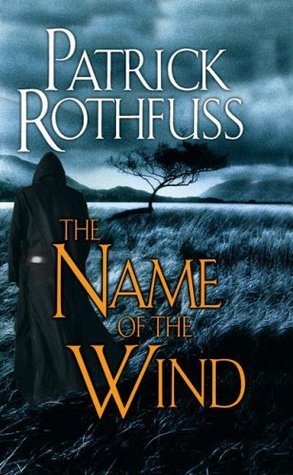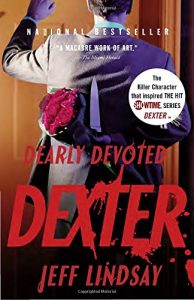 Last year, I read an author’s first book about which I had only the best to say. I like this kind of thing, because I get to know about a good author early in the career, and I can keep up over the progression and have thoughtful, chin-stroking opinions and pass on the news to other people to repay all the times that people have done this for me. The thing is, though, it really doesn’t happen very often. So you can imagine my surprise when I’ve got another one, a mere year and a half later.
Last year, I read an author’s first book about which I had only the best to say. I like this kind of thing, because I get to know about a good author early in the career, and I can keep up over the progression and have thoughtful, chin-stroking opinions and pass on the news to other people to repay all the times that people have done this for me. The thing is, though, it really doesn’t happen very often. So you can imagine my surprise when I’ve got another one, a mere year and a half later.
The Name of the Wind tells the first third of a story that borrows liberally from the tone of Scott Lynch’s books, the voice of Steven Brust’s Vlad Taltos, and the plot, among many others, of Harry Potter. How many of these are actual influences I cannot guess, of course, but there’s no question that whether influence or simple similarity, Patrick Rothfuss has created a character and a story that both are very much all his own. His world is a fairly standard fantasy landscape in trouble: the roads aren’t safe, war and the rumor of war are on everyone’s mind and tongue, and demons stalk the landscape. But stories and legends abound, very old and recent alike.
A chronicler of such stories is following rumors of one Kvothe[1] the Bloodless, Kvothe Kingkiller. He finds trouble on the road and yes, demons, but he also seems to have found what he is looking for in the guise of a small-town innkeeper. And to even his own surprise, Kvothe agrees to have his story told, if it be told exactly as he tells it, with neither embellishments nor redactions. Of course, who but Kvothe himself is to say how true the story really is, but as it involves magic, demons, dragons, and still more stories of the world underlying his own tale, it makes for a worthy read.
Well, okay, lots of terribly unworthy reads have those things too, but Rothfuss’ premiere work has, as I’ve already implied, an excellent voice telling it. This is the rare work in which the prose and plot are of equally high measure. It also has an entertaining mythology, an engagable and interesting take on magic, and, regardless of Kvothe’s veracity, a great deal of truth to it. The best of the book, though, is Kvothe himself. Unreliable narration has been a pretty sure guarantor of my enjoyment of a book for some time now, but The Name of the Wind is all the more interesting for alternating between Kvothe’s tale and the room in which he tells it, where we can see him through eyes other than his own. He contains in him the heroism he claims, the boundless sense of duty he may not even wholly be aware of, and unplumbed depths of bitter anger that appear whenever the world does not really conform to his liking. Despite how pleasantly entertaining he comes off in the story, an event during its telling that lasted for a mere page told me far more about him than anything he actually said. And this is exactly the kind of thing I love to read about. I suspect it may have to do with my hobbyist interest in psychology? In any event, my only warning and the only complaint I have about the book at all is my lack of clue about when the first sequel will be published.
[1] “Pronounced very nearly the same as Quothe”
 Man. I am way too far behind right now. It is not pretty. But, so anyway, I read
Man. I am way too far behind right now. It is not pretty. But, so anyway, I read